Hi, I’m Laila. I’m a Pediatric Nurse and a mom of two. I’ve gained much experience caring for babies while working in international hospitals. I want to share what I’ve learned and answer any questions, like “What exactly is a newborn?” or anything else you’re curious about regarding newborn babies!
We define a newborn as a baby from birth to 28 days old. This stage is also called the neonate period, though some think the infant stage lasts up to two months. During this critical phase, they typically weigh 5.5-10 pounds (2.5-4.5 kg), sleep 14-17 hours daily, and require feeding every 2-3 hours.
This Period is sophisticated for human life. During this Period, newborns face some health problems. They increase rapidly during this time and require continuous attention from their parents for their health. Identifying their needs—from food to sleep—helps promote appropriate development.
What is a newborn age?
A newborn is a baby up to four weeks old. Doctors watch for health problems by checking breastfeeding, monitoring vital signs, and spotting early issues. Around 385,000 babies are born every day worldwide, and each one needs special care in the first four weeks.
The World Health Organization (WHO) says the first 28 days of a baby’s life are crucial. Almost half of all children die before the time of 5th birth. So, every parent should take care of their newborns.
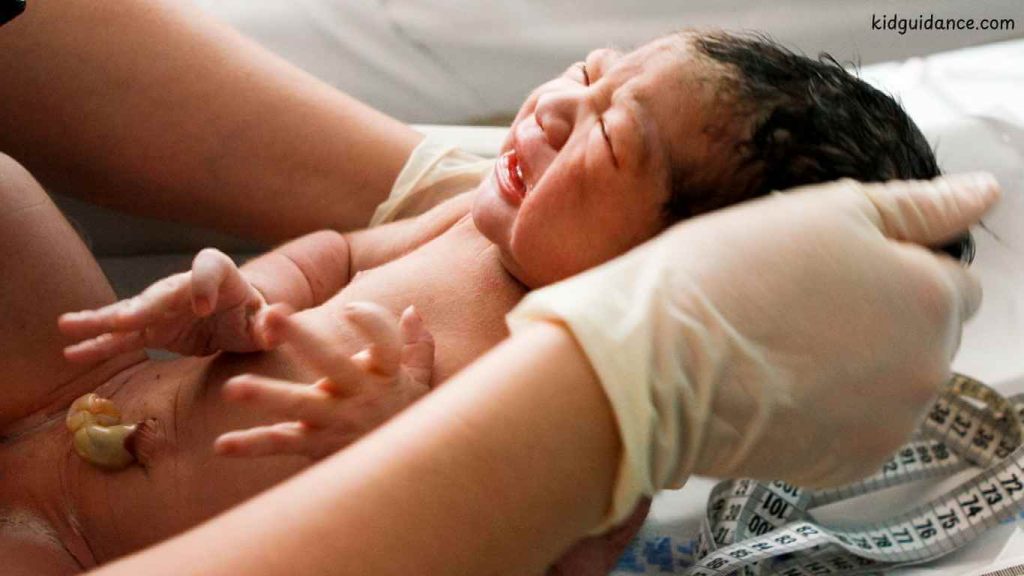
Story about a Newborn Baby
A few days ago, I worked in the nursery when a newborn patient was admitted to my care. The baby’s mom didn’t know how to care for a newborn. I taught her to care for the baby, hold him safely, and feed her correctly. I also explained how she could tell if her baby was healthy or had sought help. I briefed her about the baby’s vaccines, too.
How Long Does the Newborn Stage Last?
The newborn period usually lasts 28 days. This period is significant for the rapid physical development of the baby.
Newborn Period: First 28 days of a newborn life
Medically known: Neonatal period
Essential Statistics of 2022:
- Three hundred eighty-five thousand babies are born in one day worldwide.
- One hundred forty million babies are born in one year.
- Newborn mortality Status: 17 babies are deaths per 1,000 live baby births worldwide
Critical Developmental Milestones

- Average weight: 5.5 to 10 pounds,
- Sleeping schedule: 14-17 hours daily,
- Feeding schedule: Every 2 to 3 hours
- Basic movements: Oral-seeking behavior, feeding instinct, Startling reaction.
Extended Newborn Period (Birth to 3 Months)
- Identified: Fourth trimester
- Developmental Turning points:
- Raises head momentarily (1 month)
- Tracks moving objects (2 months)
- Smiles in response (2-3 months)
- Makes gentle babbling sounds (3 months)
Newborn Development
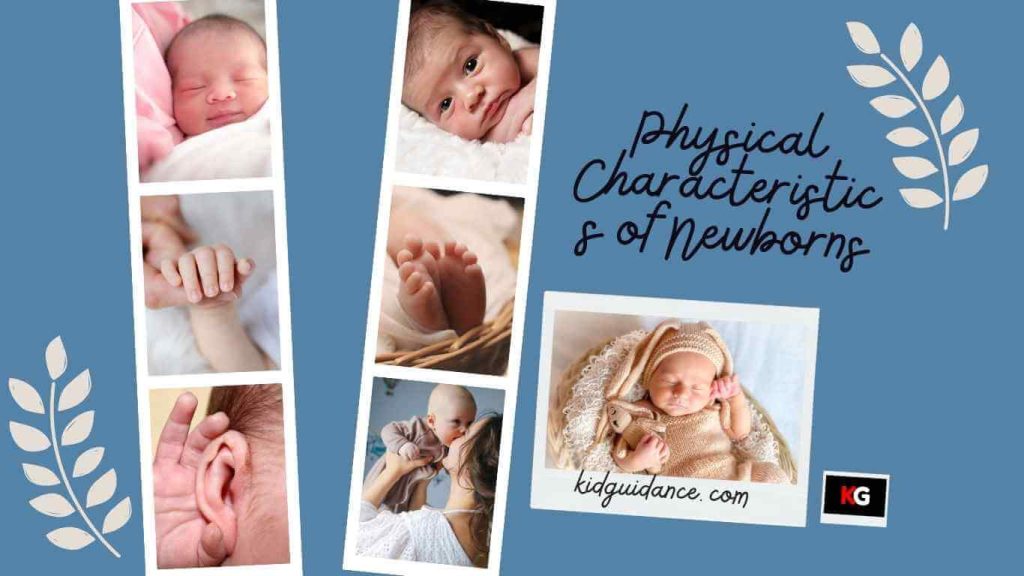
Newborns develop remarkable, gaining new skills, making changes, and discovering more each week. In this section, I’ll explore the weekly milestones of a newborn’s growth, share helpful tips, and give you the knowledge you need to support your baby’s development.
Week 1: Welcome to the World
Physical Adjustments for Newborns:
In the first week, your newborn starts getting used to the world outside the womb. Key milestones include regular feeding, sleeping for long stretches, and making small, jerky movements.
Strategies to Encourage Sleep Patterns:
It’s important to encourage a regular sleep schedule. Keep the room calm and avoid bright lights. Wrapping your baby snugly can help them feel secure and comfortable.
My Experience
In my 7 years of caring for babies, I’ve learned that when a mom holds her baby skin-to-skin, it helps keep the baby’s temperature steady and may prevent common colds. This practice, called Kangaroo Mother Care, is also helpful for underweight babies, supporting their growth and health.
Week 2: Early Senses and Reflexes
Monitoring Reactions: Rooting, Sucking, and Grasping
Week two is all about reactions. These automatic movements help newborns adjust and learn. Reflexes like rooting and sucking show healthy development.
How to Stimulate Senses: Light, Sound, and Touch
Gentle sounds and soft lighting can help stimulate a newborn’s senses. A black-and-white mobile is an excellent choice for their visual development.
Week 3: Building Strength
How to Encourage Tummy Time?
Tummy time helps build your baby’s upper body strength. Start with a few minutes each day, and slowly add more time as your baby gets used to it.
Tracking Head and Neck Control
This week, you might see your baby trying to lift their head during tummy time. These small efforts help build neck muscles.
Expert Insight on the Importance of Early Physical Strength
“Starting tummy time early helps prevent flat spots on the head and encourages physical development,” suggests Dr. Matthew Lee, a pediatric developmental specialist.
Week 4: Social Interaction Begins
Recognizing Early Smiles and Social Cues
Some babies might show their first social smiles by week four. These smiles are reflexes and often happen when they feel comfortable.
Strategies for Encouraging Eye Contact
Make eye contact while talking and feeding to build a sense of connection. Babies love looking at faces, especially those they recognize.
Examples of Bonding Activities for Parents
Singing lullabies, gently rocking, and reading soft books with large images can help establish trust and bonding.
Major Infant Developmental Milestones by Month: A Complete Guide
Every child develops uniquely, but most children reach typical milestones within specific time frames. We can break these stages of development into particular age groups: newborns, infants, babies, and toddlers. Each stage comes with its characteristics, challenges, and accomplishments.
Newborn, Infant, Baby, and Toddler: Key Differences
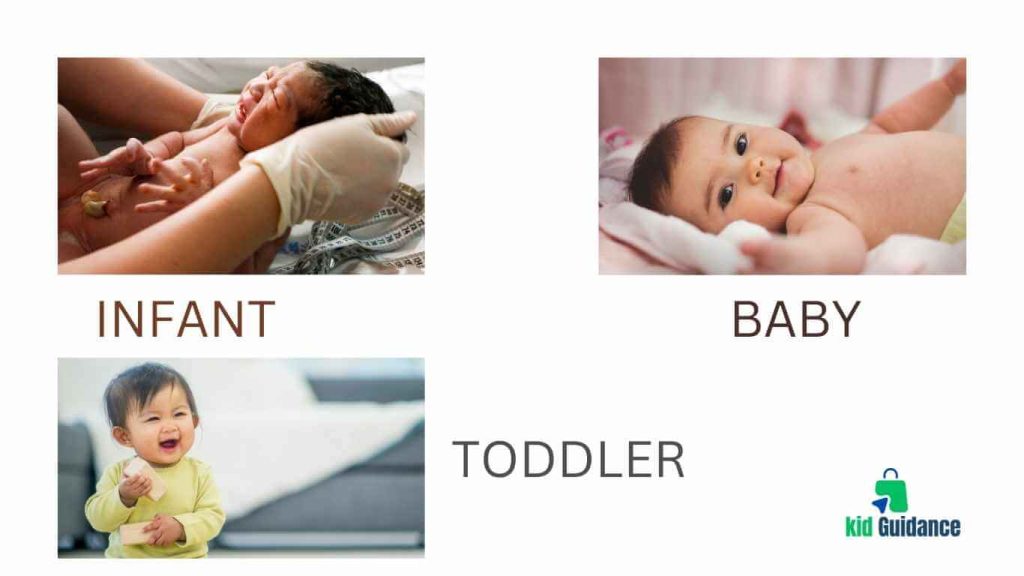
- Newborn (0-1 month): Newborns show primary automatic responses, use their senses, and adapt to life outside the womb.
- Infants (1-12 months): proliferate and develop motor skills, thinking abilities, and social awareness.
- Baby (1-2 years): Babies become more mobile, use language, and solve simple problems.
- Toddler (2-3 years): Toddlers show more independence, express emotions, and improve motor skills.
The Importance of Tracking Developmental Milestones
Tracking developmental milestones helps ensure children progress as expected. Identifying potential delays early allows for timely support and intervention, promoting healthy growth and development.
Expert Insights on Early Childhood Growth
Dr. Lisa Turner, a pediatric developmental specialist, explains: “Each child follows a unique path, but parents should be aware of general guidelines for developmental milestones. Awareness of these stages helps parents provide appropriate support.”
Newborn Stage (0-1 Month)
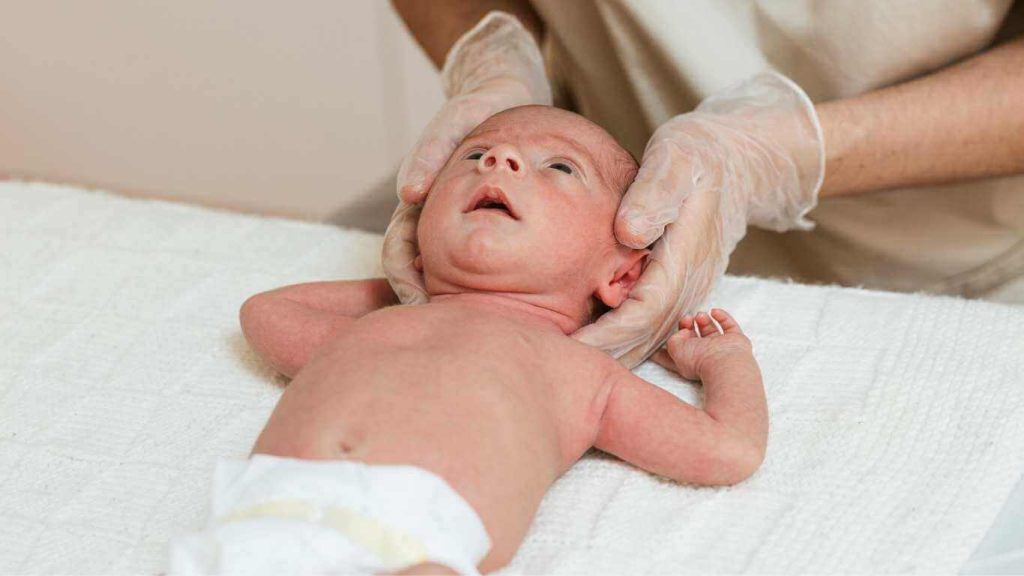
Overview of Newborn Physical and Sensory Development
In the first month, newborns adjust to their environment. They quickly gain weight and develop reflexes like rooting and grasping. Their senses also develop, focusing on light sensitivity and recognizing basic sounds.
Major Milestones to Expect in the First Month
- Physical: Weight gain of about 150-200 grams per week.
- Sensory: Response to loud sounds and preference for faces.
- Motor Skills: Jerky arm and leg movements, with the hands held in fists.
Infant Stage (1-12 Months)
Key Milestones for Infants Month by Month
- Month 2-3: Begins smiling socially and holds head up during tummy time.
- Month 4-6: Rolls over, reaches for objects, babbles.
- Month 7-9: Begins crawling, understands simple words, and shows stranger anxiety.
- Month 10-12: Stands with assistance, may take first steps, says first words.
Baby Stage (1-2 Years)
Physical and Motor Milestones from 12-24 Months
- 12-15 Months: Walks independently, picks up small objects, waves goodbye.
- 16-18 Months: Climbs stairs with help, uses a few recognizable words and builds simple block towers.
- 19-24 Months: Runs, jumps in place, begins potty training, knows body parts.
Toddler Stage (2-3 Years)
Key Milestones for Toddlers: Walking, Talking, and More
- 24-27 Months: Walks up and down stairs, kicks a ball, and begins forming short sentences.
- 28-30 Months: Can dress with help, engages in pretend play, starts asking “why” questions.
- 31-36 Months: Follow simple instructions, identify colors, and show empathy.
Newborn vs. Infant vs. Baby vs. Toddler Age Ranges Explained
| Age Range | Definition | Key Statistics |
| Newborn | Birth to 28 days | High vulnerability to infections, rapid weight gain |
| Infant | Birth to 1 year | Cognitive and motor skills grow significantly, and caregivers provide essential support. |
| Baby | Informal term, often birth to 2-3 years | Rapid growth, early motor skill development, and language acquisition. |
| Toddler | 1 to 3 years | Improve walking, talking, and basic social skills. |
FAQs
What is considered a newborn baby?
The first four weeks of life after birth are described as newborn. This stage, called the “neonatal period,” involves significant changes as the baby learns to breathe, eat, and notice sounds and sights around them.
How is a newborn different from an infant?
The period from birth to 28 days of life is newborn. Next, the baby is typically called an infant and covers ages 1 to 12 months. Newborns Highlight Accommodating new sights and sounds around them. Infants start developing motor skills and thinking abilities and begin social interactions.
How long is the newborn phase?
The newborn phase lasts for the first four weeks of a baby’s life. This critical period involves significant physiological changes, such as adapting to breathing air, learning to feed, and developing basic sensory awareness.
Is a 2-month-old still considered a newborn?
No, a two-month-old baby is not considered a newborn. By the second month, the baby has moved into the infant stage, where it begins to display more advanced behaviors, such as improved head control and social smiling.
How can you tell if your baby is developing normally in the newborn phase?
You can tell a baby is growing well if it eats enough, gains weight, and reacts to sounds. Babies developing typically also stay alert when awake, show reflexes like rooting and grasping, and make eye contact or follow moving things with their eyes. If a baby isn’t gaining weight or doesn’t respond to sounds or light, it’s essential to check with a doctor.
How much sleep does a newborn need?
Newborns usually sleep about 14-18 hours daily but wake up every 2-4 hours because they need to eat often. Creating a regular sleep schedule can help them start sleeping for longer stretches as they get older.
How often should you feed a newborn?
Newborns must eat every 2-3 hours, which means about 8-12 feedings daily. Eating this often through breastfeeding or formula helps they get the nutrients they need to grow and develop quickly.
My experience
One day in class before graduation, our pediatric professor, Dr. Sajida Dais, said the best breastfeeding position is to hold the baby’s head near your elbow, with the baby’s tummy against your palm, chest to chest, and nipple to the baby’s mouth.
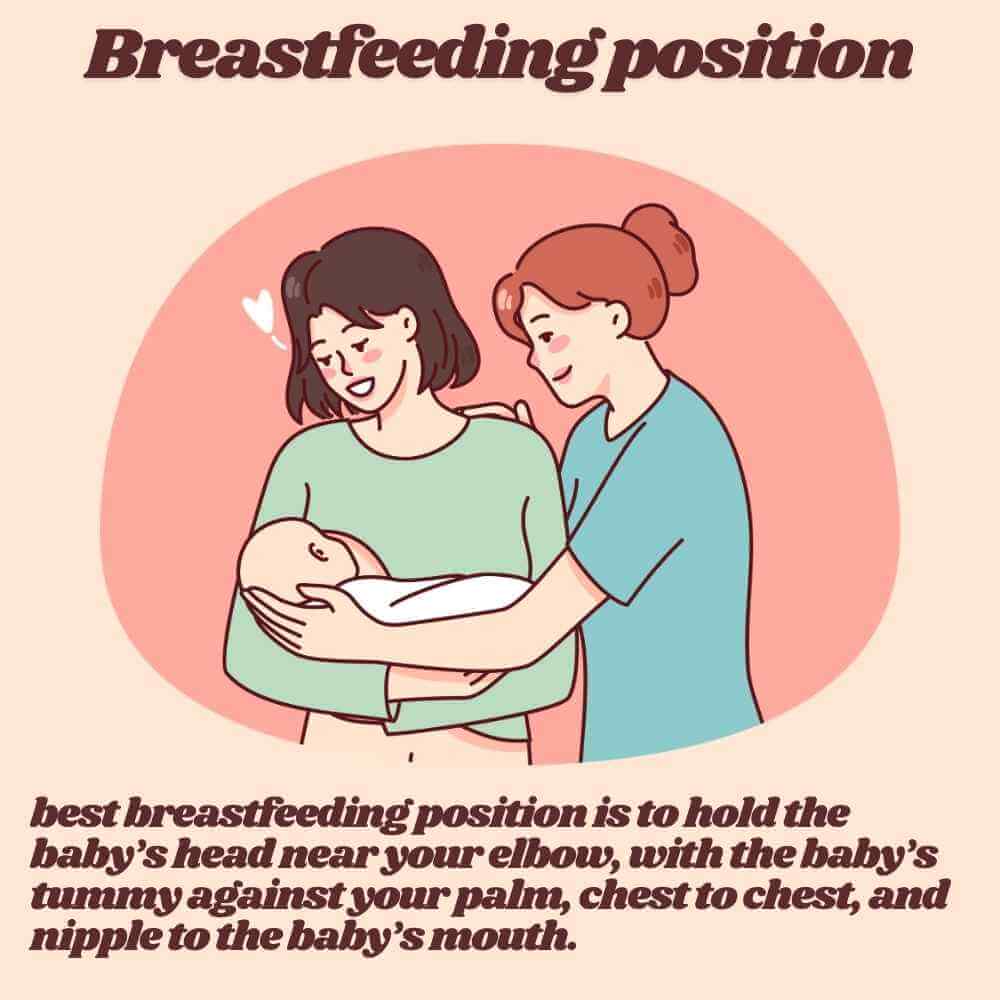
Final words
A newborn is typically a baby in their first month of life. This time is full of rapid growth and change. While exciting, it can also be challenging for new parents. Every infant is different and grows at their speed, after all.




